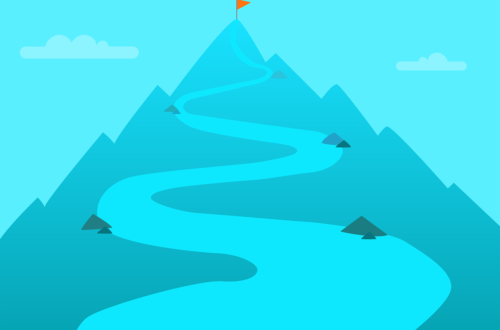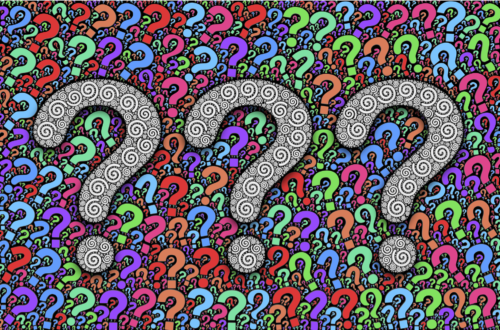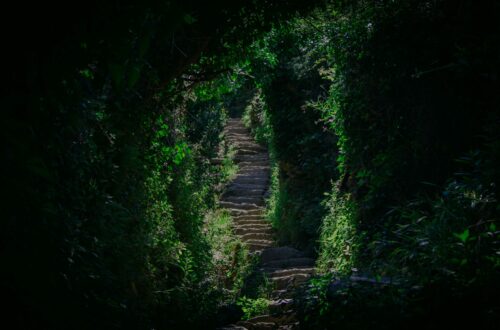
Searching For My Purpose
To begin with, the search for our purpose is, in a sense, the search for ourselves. Aristotle tied the two together directly by claiming you can’t really know anything, including and especially ourselves, unless we know its purpose. For example, can we define a chair without referring to its purpose as being something to sit on?
So there is a lot of overlap in the two questions What is My Purpose? and Who Am I? because they are both the same journey.
In short, we each have our unique contribution to make, and our purpose is to discover it. The question is, how to do it.
There are many models we can use to follow in this pursuit, but I will focus on Joseph Campbell’s Hero’s Journey motif here. Maybe in the future we can look at other examples.
Campbell’s Hero’s Journey
In Joseph Campbell’s Hero’s Journey motif, Campbell lays out seventeen or eighteen stages in this journey, and I highly recommend delving into all these stages in his landmark book, The Hero with a Thousand Faces. For our purposes, though, we are just going after the gist of this motif, so we will reduce its stages to three. I will call them: The Home, The Departure, and The Return.
The Home Stage
In the Campbell motif, we begin at home with what I call Home Consciousness. What I mean by this is that we grow up in a family and a culture where we inherit a worldview. When we are young, our parents tell us what’s what. We take on their views and values.
There is little else we can do; our brains have not yet developed the critical faculty so we end up being a sponge, soaking up everything they tell us without question. Also, we acquire information from our older siblings, friends, teachers, preachers, other family members, the culture and so on.
By the time we reach our late teens, we have accumulated a storehouse of fundamental beliefs and values. This store is so vast we can’t possibly remember it all, so it gets pushed down into our subconscious, but it still acts as a dominant force in our lives, directing us to accept or reject ideas that either agree or disagree with this mostly unconscious worldview.
At this stage, we have been programmed like a computer and, like a computer, that programming determines what we think and value. We are little more than automatons or stimulus/response machines.
For many, this programming lasts their entire lives. They never become aware of it and thus never leave Home Consciousness. They have the illusion they are free-thinking humans who are autonomous and making free choices, but nothing could be further from the truth.
But some people, and in our turbulent times the number is growing, are challenging their programming. Usually, that challenge comes as a result of some misfortune or catastrophe. Right now the threat of Climate Change, the Ukraine War, the abortion issue, and the George Floyd murder are waking people up.
It could also be a personal tragedy: the death of a loved one, a lost job, the breakup of a relationship, or a serious illness or accident that can open someone up to fundamental change. Whatever the cause, something has led us to begin to question the basic set of beliefs we have inherited. In short, we begin to question our programming. This is our first step toward liberation.
The Departure Stage
Our questions mark our departure stage. It could be the departure entails a real departure from home, family, and friends. Maybe we move, take a job somewhere else, perhaps even overseas. Something that takes us away from all we have known and into something new where people don’t know us, and we can begin to cultivate a new Self with a new perspective.
This can be a trying time. Leaving home is scary, venturing out on our own into an unknown future. There might be times when we are bored or lonely as we work to build up our new life. We may be tempted to pack it all in and head back home where it’s safe, secure and familiar. Some may even do that, but others will stick it out despite the pain and isolation. Something in us won’t let us turn back. It is pushing us forward into more chaos and fear.
Despite all that confusion and negativity, we somehow intuit that this is the way forward, and we stick with it. We can see it as a rite of passage. It’s like the Coming of Age ceremonies in indigenous cultures where the young man must go out, undergo some ordeal that changes him from a boy to a man. Then he returns to society a new person who understands what his role is. That’s what we are doing here.
It could be that our departure doesn’t take us away from home because the real departure is a mental, emotional, and spiritual one from the worldview we have inherited. It can be difficult to do it at home because everyone around us still views us as our old self, and might not want to give us the necessary space to grow; they fear we will become something they no longer know and this could be upsetting to them. This may not be true in all cases, but at the very least this is something to be aware of.
After having departed for a while, exploring new ideas and deeper states of consciousness, a broader and deeper Self begins to emerge. We start to feel like we have found a more secure foundation on which to stand, and it is from this new perspective that our purpose begins to emerge.
As I mentioned before, the more we get to know our true Self, the more our sense of purpose will become clear. Eventually, it will become vivid enough that we can move to the third stage—the Return.
The Return Stage
The Return could be that we come back home as a new person with a new sense of Self or it could just mean a return to society with a new purpose. We have discovered who we are and what we feel compelled to do. This pursuit can lead us in many unknown directions, for when we find our purpose it is not a static thing, but rather a dynamic evolving process. That is what keeps it continually fresh and exciting.
I made this scenario sound like it is only for those just growing into adulthood, but this is for anyone. A person may not have their home consciousness challenged until they are much older and have worked at a job for five, ten, or more years. At any time, this awakening can hit, telling us that we just can’t do what we are doing anymore, and we start to look for a way out.
Conclusion
So, that in a nutshell is the hero’s journey. Somehow we have to break through our childhood conditioning to begin to discover who we are and what our purpose is. Since most of us are by nature lazy, it usually takes some kind of tragedy to force us to take this journey.
It would be better if we would just naturally want to grow, but as I said in an earlier article, the Russian mystic George Gurdjieff believed that humans are robots, only they don’t know it. This is similar to my “home stage”. We are fundamentally programmed by our culture and upbringing.
Gurdjieff said it takes an act of will for humans to break through their programming. It won’t happen naturally. That is why, unfortunately, it seems to take some kind of crisis to bring about that change.
Looked at globally, we can see crises everywhere, trying to wake us up from our deep sleep. Some people are waking up as the crises hit them personally, but will the rest of us wake up in time to stave off its worst effects? That is the question.
To learn more about the magic of the universe: Click this link: The Magical Universe.
Photo by Krisjanis Mezulis on Unsplash




